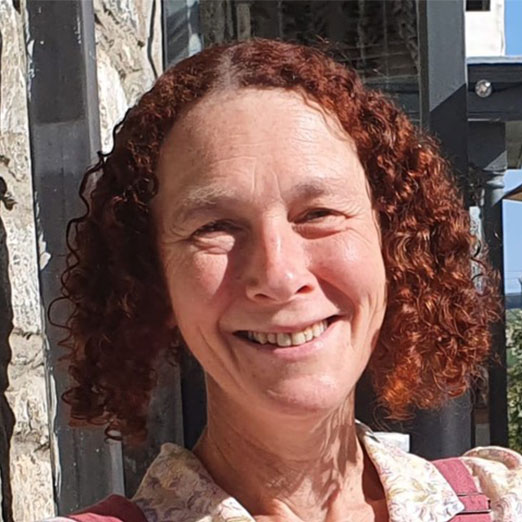“Getting knowledge and using it to ensure that we have the best health we can manage is important. Most of all, perhaps, we need community.”
How old were you when you were diagnosed with Hodgkin lymphoma?
I was 18 and treated with mantle field radiation. Life went on and, in 2013-14, I became constantly tired. I was working three days a week as a general practitioner and doing the basics at home, but unable to do much else in life. I was quite often ill with chest infections. I also had nerve pain that affected my right arm and hand. I worked when I could, sometimes when it would have been better to rest. Even so, I had to take a lot of time off, which caused stress and upset me a lot. As I approached 50, I wondered how much longer I could keep going with my job.
What happened next?
I had no idea that so much of what I was going through was linked with Hodgkin lymphoma. I found out about late effects and realized that that was my main difficulty. A very supportive occupational health doctor advised that my hours be reduced; my working week became more manageable, and I felt listened to. Luckily for me, I very soon discovered the Facebook support group, Hodgkins Lymphoma/Disease Survival & Late Effects, 1960-early 2000’s, and realized that I was not alone. There were other people out there who kept getting sick and having problems affecting different systems of the body. I was not making this stuff up.
Did you then see the appropriate doctors?
I had so many medical appointments that I started counting them. During the first three years, I was averaging two appointments per week. It was a massive burden, but worth it to get thoroughly checked out. I had help from a psychologist at the Oxford Maggie’s Centre, for people with effects of cancer, and I learned mindfulness-based meditation. Through acceptance and commitment therapy, I worked on understanding my values and how I could be true to them while living a meaningful and satisfying life, even if I was limited in what I could do.
I had a cardiologist who fully understood the possible damage from radiation and arranged for appropriate tests and an orthopedic surgeon who performed an operation to transpose and de-tension my right ulnar nerve, with very good results. Thanks to his sound clinical judgment, I now have more strength and less pain in my dominant arm and hand, which gave me the ability to do so much more. My late effects oncologist is a clear-thinking and compassionate man, and my general practitioner has offered support, understanding and encouragement. Between them, she and my oncologist have pulled the various threads of my medical story together and helped me to manage and make sense of it all.
Did you find the support you needed?
Through this very challenging time, I was blessed with amazing support not only from the Facebook “tribe,” but also from family and a number of good friends. They have taken the journey with me. It’s hard to describe how valuable this has been. I’m very lucky indeed that my husband, whom I have known since before I had HL, has stuck by me and has tried his best to understand at every stage. Again, all these people knew that the problems were genuine, and several of them came with me to various hospital appointments and helped me to deal with the rollercoaster of reviews and tests.
How is your health now?
My own determination to understand what was happening definitely stood me in good stead, and I have worked hard at physically rehabilitating myself. After the chest infections in 2013, I could only walk short distances, but gradually I built that up. I had a lot of physiotherapy, and I started Pilates on the recommendation of my physiotherapist and keep classes up to this day. I started to swim and even to enjoy it. Now I can walk as far as I want, even if I am breathless on hills. I can cycle around town, and I can swim a mile, even if it’s rather slow. I can also lift my head from the floor when lying on my back!
The psychological component of all this has been huge.
Your story conveys optimism.
The main message I want to share is one of hope—that things can change. We can learn to care for ourselves and to have meaningful and fulfilled lives. Accepting my situation, being prepared to try doing things differently, and then living to honor my values has been transformational. We need to pay attention to our physical, psychological and spiritual needs. Getting knowledge and using it to ensure that we have the best health we can manage is important. Most of all, perhaps, we need community—love and support from others, whether that be through our online “tribe” or from family and friends closer by. I’m so grateful to all who have helped me, and still help me, in this way.
